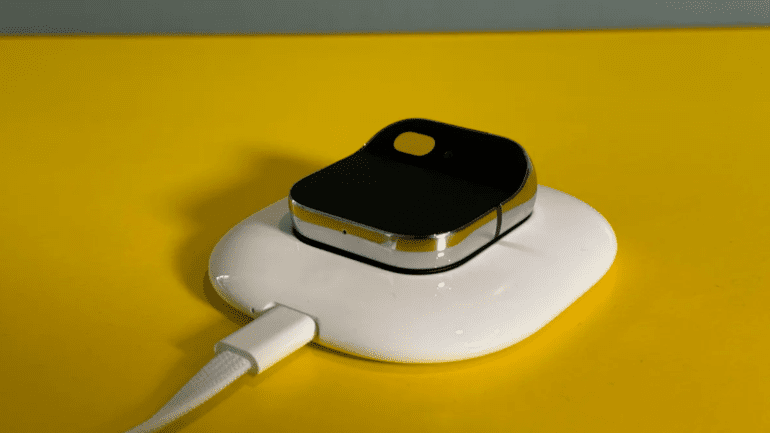- Humane, led by ex-Apple staff, seeks buyer for AI Pin after poor reception.
- Bloomberg reports price sought between $750 million and $1 billion.
- AI Pin criticized for slow responses, flawed user experience.
- Features CosmOS operating system and laser “display”.
- Humane received $230 million in funding, including from OpenAI CEO.
- AI Pin’s value questioned after universal criticism despite innovative ideas.
- Potential buyers limited despite tech giants’ AI interests.
Main AI News:
Following the lackluster debut of its AI Pin wearable computer, startup Humane is actively seeking a potential buyer for its operations. As reported by Bloomberg, the company, helmed by former Apple stalwarts Imran Chaudhri and Bethany Bongiorno, aims to secure a sale within the price range of $750 million to $1 billion.
The road to finding a buyer may prove challenging in light of AI Pin’s disappointing performance. Critics have widely criticized the device for its sluggish responsiveness and a user interface that falls short of the envisioned always-on, wearable AI assistant. Despite initial promises, the product failed to deliver on its goal of fostering presence and reducing smartphone dependence.
Central to the AI Pin is Humane’s proprietary operating system, CosmOS, which powers the device. Integrating with an array of AI models, CosmOS facilitates voice-activated queries and analyzes visual data captured by the built-in camera. Notably, the device features a unique laser “display” projected onto the user’s inner palm, requiring a monthly subscription for continued functionality.
Humane’s financial landscape is also under scrutiny, having secured $230 million in investments, including backing from OpenAI CEO Sam Altman. Speculation surrounds Altman’s involvement in a separate project, potentially in collaboration with renowned Apple designer Jony Ive, aimed at showcasing AI’s capabilities more effectively.
Previously valued at $850 million, Humane faces challenges in light of the scathing reviews of its inaugural product. While innovative concepts are present, the AI Pin’s software is criticized for being underdeveloped and inconsistent, compounded by hardware issues such as poor battery life and overheating. Humane aims to rectify some of these issues through firmware updates, recently integrating OpenAI’s GPT-4o model to bolster device intelligence.
Despite its aspirations, Humane’s pool of potential buyers appears limited, given the ambitious price tag. While tech giants like Amazon, Apple, Google, Meta, and Microsoft are heavily invested in AI development, the true value of Humane’s intellectual property remains uncertain in the context of their existing endeavors.
Conclusion:
Humane’s quest for a buyer following the disappointing reception of its AI Pin underscores the challenges in the wearable AI market. Despite significant investments and innovative features, the product’s performance shortcomings have raised doubts about its viability. The limited interest from potential buyers suggests a cautious approach from major tech players, highlighting the importance of delivering on promises in the competitive AI landscape.

